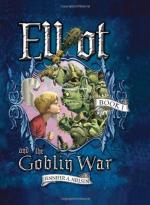|
This section contains 7,602 words (approx. 26 pages at 300 words per page) |

|
SOURCE: “‘Refuse Heaped Many Stories High’: DeLillo, Dirt, and Disorder,” in Modern Fiction Studies, Vol. 45, No. 4, Winter, 1999, pp. 987–1006.
In the following essay, Helyer analyzes the meaning of the “waste” metaphor in Underworld in relation to patriarchal ideals of masculine cultural authority.
Don DeLillo’s Underworld explores boundaries, particularly the thin dividing line between what is considered waste product and what is not. Any discussion about what constitutes dirt and abjection leads to questions about concepts of “the body” and consequently gender-specific identity. The narrative’s relentless revelation of borders as fluctuating, rather than fixed, demonstrates the problems, not only of disposing of waste, but of identifying waste in the first place. Although this difficulty affects all identities, it is acutely felt by the classic narrative hero, who embodies the patriarchal masculine ideal of cultural authority. Such authority encompasses an inherent potency (even omnipotence), a taste for adventure, bravery...
|
This section contains 7,602 words (approx. 26 pages at 300 words per page) |

|


